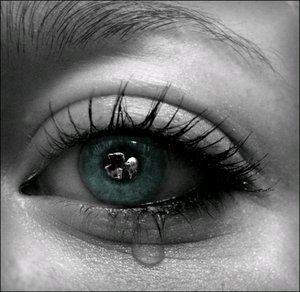 Many of us have read or know of the stages of grieving. Depend on where you look it is either the 5 stages or the 7 stages of grieving. They are not to be taken as rigid steps towards life/acceptance but more a fluid state of moving in and out, back and forth. I prefer to 7 stage one, gives more room and more reality.
Many of us have read or know of the stages of grieving. Depend on where you look it is either the 5 stages or the 7 stages of grieving. They are not to be taken as rigid steps towards life/acceptance but more a fluid state of moving in and out, back and forth. I prefer to 7 stage one, gives more room and more reality.
With any chronic illness comes grief. Grief of what is lost or changed. With eating disorders there are two distinct grieving areas. One for the parents/carers and one for the sufferer. It is important for each person to realise the grief, and allow it to happen. You must grieve, in order to let go and move forward. The grieving and ‘completion’ of such also allows for acceptance of where you son/daughter is and you can be there for them in the space they are in.
1. Parent grief
As parents we all have dreams for our kids. Some aren’t based on the reality of our child, most are. We have a plan of what we think and hope they will move through to gain adulthood, careers, love etc. When disaster strikes we lose this dream, our hopes are dashed as to how or if our children will realise any kind of adulthood. When eating disorders happen (and often they strike in late high school years, early uni years) they take a lot of the dreams, choices, careers etc into delay or totally away. Our children may not finish high school (mine came so close, my friends daughter did leave), they have to defer uni, relationships break down – some becoming irretrievable. If we, the parents, are to be of worth and support to our children then we need to grieve that future our children may not have and take a reality check. Blame or getting annoyed at them is wrong. They did NOT choose this and are acutely aware of what they may have lost. We need to go through the stages of grief and then come out the other side. I have had to do the same. It is tough to do when you see the healthy, on-track child you had with a bright future, suddenly replaced with a very sick child who is going to follow a different path to their future. I learnt that there are many ways to gain an education and entry into university.I learned that careers are not as important as life. Whatever my daughter is capable of and is able to do, will be now the future she has. Each stage of maturity, adulthood, career etc will always be doable only if she is able to cope and not get sick. The fact that my daughter is alive, well at this point, and able to have a future of some sort is the biggest gift. But I can only appreciate that gift because I had to grieve and let go.
2. Suffer grief
Suffers have a two-pronged grief. They too have to grief the life they may not have had, the loss of relationships, education, career, youth, growing up etc. Because this is a very personal grief it is something that may takes years to work through. It can be the loss of everything you ever wanted, or the path you took to get there was the long way around. Support, acceptance, love are the keys you need to have around you to help you adjust and remake your lives. Hope and inspiration from those who do realise their dreams despite having an eating disorder are also important.
The second grief, just as real and just as hard, is letting go of the eating disorder itself. It has become your ‘friend’, the presence you rely on for comfort, protection, safety, coping with life. It is really hard to let go, despite the fact it is a very bad friend and is destructive. It is no different to those of us letting go of abusive partners. We can see clearly the mess they have made of our lives, but there are always benefits of keeping them around. To get well, to heal, to recover we have to let go of the bad friend. And it hurts, life is empty, what do you do with the empty space. Again therapy, love, support etc around you during this time is essential. To learn to grieve and let go. To learn what to fill the empty space with. It can be far too easy to fill the space with other addictive and destructive behaviours. But you must grieve the loss of the ED to move on. It is not a fickle, superficial relationship and if not given the respect of grieving, lurks waiting to pounce again.
============
Wherever or whoever you are in this, allow yourself time to grieve. It is essential, a part of recovery for all. Eating disorders affect both family/friends of the sufferer as well as the sufferer. We must all grieve and learn to move to a different reality that can be just as wonderful as the old reality we had chosen. We have to be open to accept it.
